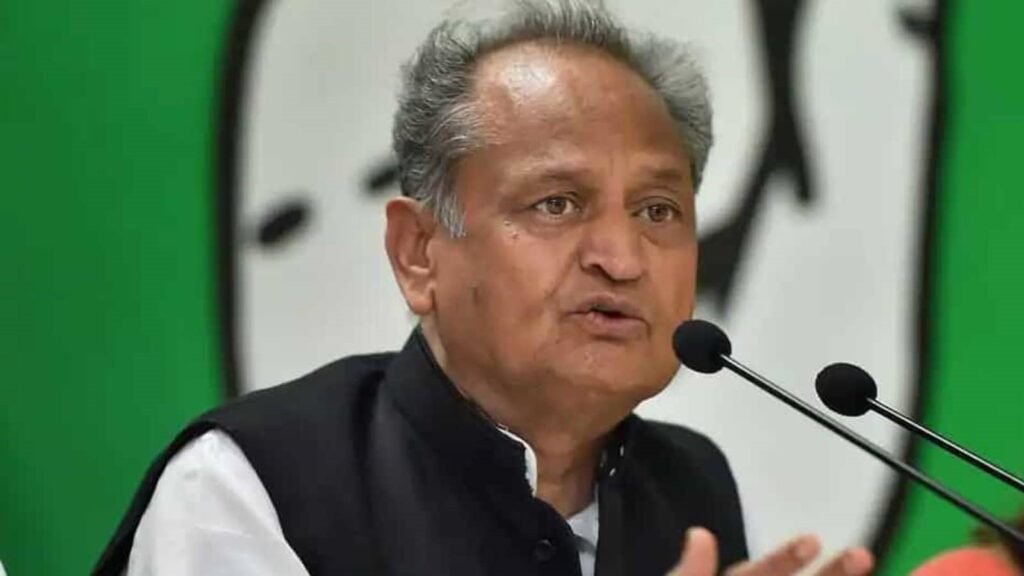Ashok Gehlot Said Phone Tapping Is A Crime In Democracy
Ashok Gehlot said phone tapping is a crime in a democracy: Phone Tapping Case.
Rajasthan Chief Minister Ashok Gehlot has hit out at the central government, dismissing the BJP’s allegations regarding the increasing crimes in the state.
He said that it is necessary to have tolerance power in a democracy. This is not the case in the government at the Center today.
The Central Government is under pressure on CBI, ED, and Income Tax Department. There is a fear among the people of the country that their phones are being tapped.
The Pegasus issue has come to the fore now, we have been talking about it for the last five years.
Tapping someone’s phone is a crime in a democracy. Gehlot was speaking at the virtual inauguration ceremony of 15 new police stations in the state on Wednesday.
He said that on the basis of National Crime Records Bureau (NCRB) data, BJP leaders are accusing the state government. There is no merit in their allegations.
The NCRB has written at the beginning of its report that crime is the result of the circumstances prevailing in society.
There is a difference between an increase in crime and an increase in crime registration. Some people have started considering both as one.
During this, Gehlot suggested to the police that the recommendation will work in a democracy, but the recommendation should be accepted in which justice is given to the aggrieved party.
The police should not accept the recommendation of the criminal’s side.
Female atrocities decreased.
Ashok Gehlot said that in the year 2020, there has been a decrease of 16 percent in women atrocities in Rajasthan.
During the tenure of the BJP government in the state, in 2017-18, 30 percent of the women had to reach the court to register rape cases, there was no hearing in the police stations.
He said that unless the attitude of the social changes in cases of rape, the police cannot do anything. In cases of crimes against women, 47 percent of the reports are found to be false in the investigation.
In the year 2020, 23 percent of the cases registered under the POCSO Act, and in the current year so far 20 percent of the cases have been found to be false.
Due to the registration of false cases, sometimes even the real victims face difficulty in getting justice.




